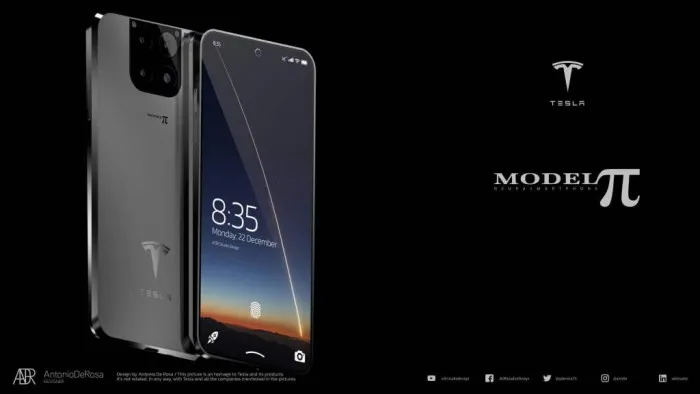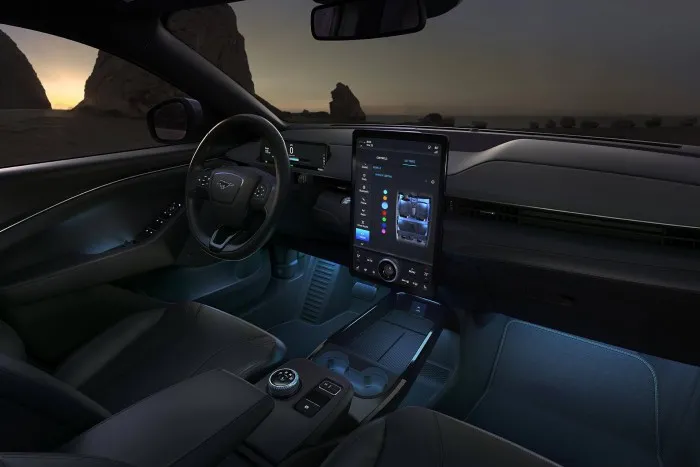*Author: Light, Mr.Yu
As mobile phone manufacturers are making aggressive moves, some car manufacturers choose to rush into making mobile phones
After Xiaomi announced a $10 billion investment in car manufacturing, OPPO recently announced that it will also join the team of car manufacturers. Faced with the aggressive moves of mobile phone manufacturers, some car manufacturers are finally ready to strike back.
According to reliable sources, a domestic car brand is actively deploying its mobile phone business and planning to integrate its intelligent cockpit business with the new mobile phone business line.
As the war between mobile phone manufacturers and car manufacturers is about to break out, surprisingly, both sides start with the tactic of “changing sides” – directly attacking the other’s core business.
As the specific announcement date is still in the confidential stage, we can only zip up our mouths. Let’s let this bomb fly for a while. We believe that soon, the shock wave of this heavy news landing will once again shake the automotive industry.
After reading today’s article, please leave a message in the background to tell us which company you think it will be.

Behind the topic, there are often more expectations
If you think it is unbelievable that car manufacturers are making mobile phones, it has actually been a joke that appeared not only in April Fool’s Day marketing videos.
In March 2021, a video circulating on the internet showed that Tesla will enter the mobile phone manufacturing market, and the new phone will be named Model π. Controlling cars and solar energy charging are just basic functions. Starlink connection, brain-machine connection, and mining are all for fun.

In fact, this is a concept video created by a certain studio based on Tesla’s corporate culture. Interested friends can search for relevant keywords on Bilibili and other platforms. To be honest, after watching the entire video, there are indeed a few moments that make people feel that the miraculous luxury cars made by Q for 007 are not so far away from us.
Why do Apple and Xiaomi make cars, and Tesla make mobile phones? The reason why such “cross-border manufacturing” repeatedly tops the hot search is precisely because of users’ expectations. There are too many users who hope that their intelligent cockpit can be as convenient as a mobile phone that everyone can use skillfully, and they also hope to have an advanced mobile phone that can “master” intelligent cars on the other hand.
As Xiaomi’s Lei Jun said, for the difficult problem of “whether to make electric cars or not,” the enthusiastic support of Xiaomi fans encouraged him. For the expectations of Mi fans, he is willing to bet all his honors and fight the final battle.
Whether the heroic Lei boss can fly with the wind this time, we hope that what will be mass-produced and launched is not “the first bump car for young people”.## Car manufacturers make phones: competing for user traffic beyond driving
Car manufacturers want to make phones, and the motivation behind this is not as absurd as it seems.
At present, the development of intelligent cockpits has encountered bottlenecks in both ecology and experience. Independent intelligent cockpits can no longer meet users’ expectations. The emergence of Huawei’s smart cockpit has dealt a heavy blow to car manufacturers, and the belief that “creating a cockpit that can get rid of the phone as soon as you get on the car” has collapsed.
When the phone has become an intelligent terminal that accompanies people everywhere, what users need is not a cockpit that can “get rid of the phone”, but a cockpit that can seamlessly connect with the phone.

Compared with the electric vehicle industry, the mobile phone industry is too mature. Perhaps the various powerful and affordable counterfeit machines have gradually disappeared from people’s view in recent years. You should know that it is not difficult for individual vendors in Huaqiangbei to skillfully assemble phones.
For car manufacturers, the industrial chain is no longer a problem. The real difficulty is how to create a system that can be used for both mobile phones and car machines.
This system can be optimized on the already mature Android system, or it can be like Huawei’s newly-built Hongmeng system, although the latter is much more difficult. However, if car manufacturers also want to build a complete Internet of Things product system in the future, system-level software development is destined to be an important step that cannot be bypassed.
Domestic automobile brands are willing to take this step, and more importantly, they understand that they need to rely on product strength to win users. However, Chinese users are very practical, and brand loyalty is often based on the brand’s product strength. Once the product strength declines, the brand will face rapid user loss.
However, domestic automobile brands still choose to occupy other scenes beyond driving through this form to maintain user stickiness to the brand. The manufacturer we cannot name at the beginning is trying to do this.
Think about how many people choose to continue to be Apple users because they are used to the convenience of iCloud, the ease of use of macOS, and the Apple ecosystem, and this matter may not be so difficult to understand.
Phone manufacturers make cars: growth anxiety or taking advantage of the situation?
Is electric vehicles really a good business? Maybe it is compared to the current and future intelligent phones.
The Chinese smart phone market is becoming saturated, and consumers’ demand for new devices is slowing down. The annual survey report of Canalys, a globally renowned IT consulting firm, shows that the shipment volume of Chinese smartphones peaked at 470 million in 2016 and has been declining year by year. In 2020, it was about 330 million units.## Xiaomi: Mobile remains its main source of profit, accounting for over 60% of total profits in the past years
In recent years, the rising cost of manufacturing, especially the procurement cost along the supply chain, has put tremendous pressure on the profits of mobile phone manufacturers. Therefore, finding new breakthroughs in business has become urgent for these manufacturers.
In contrast, the automotive industry has a different outlook. More and more favorable policies towards new energy vehicles have been introduced at the government level. The Development Plan for the New Energy Vehicle Industry (2021-2035) released by the General Office of the State Council explicitly states that the sales of new energy vehicles are expected to account for around 20% of total new car sales by 2025.
According to data from the National Bureau of Statistics, new energy vehicles currently account for only about 5% of total car sales. Given such a significant opportunity, it is not surprising that major mobile phone manufacturers, who are also part of the manufacturing industry, are showing interest.
One important reason for the Chinese government supporting the construction of Tesla’s factory in China is because of the positive impact it can bring to the new energy vehicle industry chain in China. As the industry chain becomes more mature over time, the barrier for entry into the market will gradually lower. Therefore, just like Nio and Ideals started from scratch, we have no reason to doubt that the mobile phone manufacturers, who have rich management experience in OEM manufacturing, cannot do it too.
Both the automotive and mobile phone industries place emphasis on their manufacturing and marketing capabilities. Most mobile phone manufacturers have a wide user base and a physical retail network. Each mobile phone could serve as a moving advertising platform, and each retail store could become a new car sales experience store. Huawei, as a pioneer, announced a partnership with Cyril during the Shanghai Auto Show to open a car sales business in its flagship store, opening a new chapter in car sales.
Although some people ridicule Huawei’s “selling cars in mobile phone shops” as overselling, we must admit that whatever the sales model, the actual earnings afterwards will be the most powerful response to such criticisms.
When people open the shopping apps of Xiaomi, Huawei, and other leading mobile phone brands, they will find that the products sold on the platform are no longer limited to smartphones. Especially for Xiaomi, after years of deep involvement in the field of IoT, it now has a vast range of smart hardware products ranging from wearable devices to household appliances.
Xiaomi’s continuous investment in AIoT is clearly driving towards the ultimate goal of a complete intelligent ecology system. The concept of car as the next mobile terminal has been around for some time. As the crucial carrier of future AIoT, the automotive scene is something that mobile phone manufacturers, especially the leading players, cannot ignore or discard.
ConclusionAdjacent to the famous Dashilar commercial area in Beijing, there is a small shop on Meishi Street in Qianmen. The owner, surnamed Zhang, is humble, yet proud with the traditional business spirit.
We call him “Uncle Zhang”. He runs a traditional Beijing hot pot restaurant that is highly praised by diners for both its taste and atmosphere.
A long time ago, we asked Uncle Zhang a somewhat offending question: “Your restaurant is obviously a traditional Beijing hot pot place, why did you decide to add dishes like the mandarin duck hot pot?”
Uncle Zhang replied, “There are always people who ask for it. Should I refuse them? If I say no today, someone will ask me the same question tomorrow. Look at my location, if I refuse, then the money will just go to someone else who’s willing to serve it. So, should I serve it or not?”
After a moment of silence, we smiled and raised our glasses and tea bowls to each other.
Technology changes rapidly, industries evolve, and traditions are held in pride and perseverance. But in business, profit is always the bottom line.
Finally, we would like to share a little story as a conclusion to today’s topic.
This article is a translation by ChatGPT of a Chinese report from 42HOW. If you have any questions about it, please email bd@42how.com.
